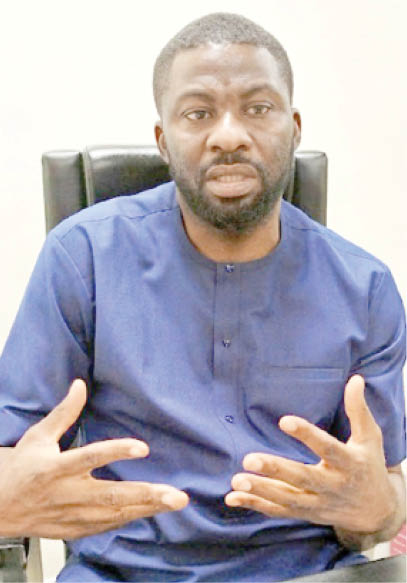In recent years, stakeholders have expressed serious worry about the rising cost of production and the price of fertiliser. Farmers in rural and peri-urban areas are exposed to a booming adulteration market where substandard and inexpensive fertilisers that have minimal or no effect on crops are sold. In this interview, the executive secretary of the Fertiliser Producers and Suppliers Association (FEPSAN), Mr Gideon Negedu, suggested what the producers believe the federal government needs to do.
Let’s begin by looking at the current economic hardship and the affordability issue since the beginning of this wet season. Where are we in terms of fertiliser supply right now?
Fertiliser supply is ongoing; it is steady, but the issues we had from the beginning of the year are still there; and if anything at all, they have increased a bit. What are those issues? Price, cost of production. In fact, over the last two years we have a bit of challenge because we are coming out of COVID and we had supply chain crisis from production plants that were supplying us raw materials; prices now tripled. That problem was being solved, then the Russia-Ukraine crisis came and created a scarcity that threw the price up. We got cargo but we got it late in the season. Unfortunately, supply prices were ridiculously too high. Sometimes, in some cases, as high as 600 per cent changed in the price.
Are you talking about raw materials?
No, the final product. Raw materials were doing 300 per cent, but you know that raw materials are just part of that cost. Logistics cost is there and all those stuff. Unfortunately, we came with expensive cargoes from last year to this year. We have sold most of that cargo now. But when we wanted to go back to the international market to buy raw materials to continue our blending, the forex problem came. So we can’t really get the main benefits we would have gotten because the FX is very high. Not FX alone, they now slam us with this subsidy thing.
So, to be honest with you, the challenges are there and not unique to us, it is in every space.
The fallout of all that is that prices are a bit higher. But fertiliser is available; we don’t have an unavailability crisis, it is available, which is a good thing, but it is expensive. Now, the farmers are the ones to watch. They have done their bit to buy the little they can to do their farming. We are watching because if the government does anything importation of food and all that and the farmers are not able to get the benefits for their investment, there will be discouragement.
Outrage Trails Governors’ Bloated Appointments
We know that government may not be able to sustain importation. I will take rice for example; in the last three months, India that is known as one of the biggest drivers of rice have decided to shorten, so they are not allowing export of rice again; and that is causing a bit of pressure in the world market today. They only sell for specific type of rice they may allow, like Basmatic. But for the core rice, which they pump in a lot out and that puts a lot of supply in the international market, once that supply has now been shortened, you have a problem.
I am just coming in from China, which is restricting. People are trying to be strategic in their food security plans. In all of these things we need to, as a country be thinking more longtime and more strategic. The path we have been on makes sure it works. For example, the policy path former President Muhammadu Buhari put us on was fantastic – making sure they closed the border or put restrictions so that our farmers would be encouraged locally. That drives industry like ours and all the others that come in. And if the current president decides to flip and change that too aggressive, that could cause a lot of problems because that will discourage the farmers, and if you discourage these farmers, it means you are now exposed to import. Do you have the dollars to continue to sustain that?
You are back to square zero because the first aim of going into this is to reduce the pressure on forex so that things like rice alone that takes over 2 billion USD, you make sure that is saved for the country. The palm oil we used to import you have a programme to intensify.
In some crops, they have done well. In a number of crops, the Anchor Borrower’s programme has its problems. Some of those problems were self-inflicted while some within the general environment that farmers found themselves like flood and banditry, which is the purview of government to solve and if the president, is able to solve the problem of insecurity. The farmers can go to their farms. But let’s be honest, things are tough.
If you look at the forex crisis and the fact that producers like you will now have to source it to get raw materials and farmers have been unable to buy because prices are going up, how is that going to affect you as a producer and the industry?
This is the danger we need to manage. To be fair to the government, things have not changed rapidly like that. The three items are still there. Government gives access to us through the NSIF vehicle to be able to access forex, so we are not necessarily accessing forex at a very high black market rate. Now, we have a new Central Bank of Nigeria (CBN) governor; who is he going to do 360 or decide to throw open the whole thing? Then everybody will now be subject to going to look for dollars. But the fact remains that the prices are high.
Under the GES, which was N5,000, the government has never done beyond N3,000 for subsidies. Even if they did N5,000 today, the impact on the price of fertiliser, farmers will not really feel it. If they even put N10,000 today, it will still be coming to something around N12,000 or N13,000.
So, the real thing and the hard truth is that the government has a lot on its plates. We want to work together with them so that it works. It is not a question of this man is this or that. If the president fails today, it will affect all of us, so we are worried.
As an industry we are going on, but the essence of our industry is that farmers buy the fertilisers. If the prices of food are too low, farmers will be discouraged and if the farmers are discouraged, they won’t buy the fertilizers, and if they don’t buy, the industry will shut down. If the industry shuts down, people will lose their jobs and investments and it becomes a problem. We pray it doesn’t get to that.
How would you describe the current sale of fertiliser?
To be honest with you, farmers are still buying. They have really bought into seeing agriculture as business. For them, it is an investment. If the final output remains profitable, they don’t care, they will keep buying. Although they will still complain, they might reduce the acreages they farm, but they won’t stop buying. But to be honest with you, the input cost has been ridiculously high.
In some countries, intervention in agriculture is seen as a matter of national security. They still subsidise agricultural input, which is a critical component. Is it something you think this government needs to do, particularly as fertiliser is central to crop production?
The good thing is that government is engaging relevant stakeholders; and we as a private sector association and supply association of the country are engaged. We are engaging the government and having conversations here and there. There are intervention programmes that have been planned and one of them was the palliatives and going into the dry season. There’s a plan to support farmers with fertiliser input and all that.
We agree with the government that there is a need to support farmers. Our preferred option will always be: give this subsidy or support at the production level because government cannot target more than a particular number of farmers. For example, we have almost 60 to 100 million farmers in this country. The government can’t do more than 5 million. What they want to do for the dry season, they want to support one million farmers with 1 bags of NPK 1 bags of Urea. You need about 4 to 6 bags of NPK and 2 bags of urea on a hectare. What will 2 bags do? It is price support. The farmer will still pay, so it is token. The best way to put that money, in my view, is if you put maybe a N100 billion in production, you may drop the cost that is between 24,000 and 26,000, depending on the particular blend you are looking at. You may drop that cost by maybe N5,000 to N10,000. There are certain waivers they should be able to give as government so that it will make it easy for people to go to their farms.
Government needs to think critically about this rather than direct subsidy that sometimes are not efficient. But like I said, we are working with government farmers and have to be supported; there’s no doubt about it. But the ‘how’ is what we are all working together to make sure it is done efficiently so that it doesn’t discourage the main business. Government only support is 1 to 2 bags, but a farmer needs eight bags. We should be able to buy the remaining six bags, but if you don’t manage these two bags you are supporting, it has a way of wiping out the other remaining six bags. So, like I said, for the government to be fair to them, this is even at the level of the vice president, he has called several meetings. I think this is one very corporative government and we hope it continues and sees it in form of improvement in agriculture space.

 Join Daily Trust WhatsApp Community For Quick Access To News and Happenings Around You.
Join Daily Trust WhatsApp Community For Quick Access To News and Happenings Around You.


